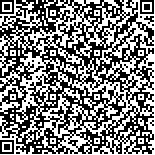| 引用本文: |
苏文渊,罗伦,蒋敏,樊冰,覃辉.舌三针埋线疗法联合高频重复经颅磁刺激治疗脑卒中后吞咽障碍的临床研究[J].湖南中医药大学学报,2021,41(8):1230-1234[点击复制] |
|
| |
|
|
| 本文已被:浏览 3744次 下载 1412次 |
| 舌三针埋线疗法联合高频重复经颅磁刺激治疗脑卒中后吞咽障碍的临床研究 |
| 苏文渊,罗伦,蒋敏,樊冰,覃辉 |
| (四川省成都市第二人民医院, 四川 成都 610017) |
| 摘要: |
| 目的 评价舌三针埋线疗法联合高频重复经颅磁刺激(repetitive transcranial magnetic stimulation,rTMS)治疗脑卒中后吞咽障碍的疗效及安全性。方法 将成都市第二人民医院康复科2019年1月至2020年2月住院治疗的60例脑卒中后吞咽障碍患者随机分为常规治疗组、rTMS治疗组、联合治疗组,每组20例。3组患者均予内科基础治疗,常规治疗组采用吞咽直接训练和间接训练,rTMS组除采用常规治疗组方案加rTMS治疗方案,联合治疗组采用rTMS组治疗方案外加舌三针埋线疗法治疗。治疗前后采用洼田饮水试验(water swallowing test,WST)量表、标准吞咽功能评价(standardized swallowing assessment,SSA)量表、吞咽障碍特异性生活质量(swallowing quality of life questionnaire,SWAL-QOL)量表评价患者吞咽功能,采用洼田吞咽能力评定量表评价疗效,并观察不良反应。结果 联合治疗组总有效率为94.7%,rTMS治疗组为88.9%,常规治疗组为68.4%,两两比较差异均有统计学意义(P<0.05)。治疗后,3组患者WST评分、SSA评分、SWAL-QOL评分均较治疗前有显著改善(P<0.05);且联合治疗组、rTMS治疗组均优于常规治疗组(P<0.05),联合治疗组优于rTMS治疗组(P<0.05)。3组均未出现严重不良反应。结论 舌三针埋线疗法联合rTMS疗法能更好地改善患者脑卒中后的吞咽功能,减少误吸,提升患者生活质量和精神状态,值得临床推广。 |
| 关键词: 脑卒中 吞咽障碍 靳三针 经颅磁刺激 吞咽功能 WST量表 SSA量表 SWAL-QOL量表 |
| DOI:10.3969/j.issn.1674-070X.2021.08.015 |
| 投稿时间:2021-05-20 |
| 基金项目:四川省卫生厅课题(130411);四川省医学会课题(S17006)。 |
|
| Clinical Study of Tongue Three Needle Catgut Embedding Therapy Combined with High Frequency Repetitive Transcranial Magnetic Stimulation in the Treatment of Dysphagia After Stroke |
| SU Wenyuan,LUO Lun,JIANG Min,FAN Bing,QIN Hui |
| (Chengdu Second People's Hospital, Chengdu, Sichuan 610017, China) |
| Abstract: |
| Objective To observe the clinical efficacy and safety of tongue three needle catgut embedding therapy combined with high frequency repetitive transcranial magnetic stimulation (rTMS) in the treatment of dysphagia after stroke. Methods 60 patients with dysphagia after stroke admitted to the Rehabilitation Department of Chengdu Second People's Hospital from January 2019 to February 2020 were randomly divided into conventional treatment group, rTMS treatment group and combined treatment group, with 20 cases in each group. All the patients in the 3 groups received basic medical treatment, the conventional treatment group was given direct and indirect swallowing training, the rTMS treatment group was treated with rTMS in addition to conventional treatment group, and the combined treatment group was treated with tongue three needle catgut embedding therapy in addition to the rTMS treatment group. Water swallowing test (WST) scale, standardized swallowing assessment (SSA) scale, swallowing quality of life questionnaire (SWAl-QOL) scale were used to evaluat to swallowing function of patients, Kubota water swallowing test was used to evaluate the curative effect, and the adverse reactions were observed. Results The total effective rate was 95% in the combined treatment group, 88% in the rTMS treatment group and 68% in the conventional treatment group, pairwise comparison showed statistically significant differences (P<0.05). After treatment, WST score, SSA score and SWAl-QOL score in 3 groups were significantly improved compared with before treatment (P<0.05); the combined treatment group and rTMS treatment group were better than the conventional treatment group (P<0.05), and the combined treatment group was better than the rTMS treatment group (P<0.05). No serious adverse reactions occurred in 3 groups. Conclusion The combination of tongue three needle catgut embedding and rTMS therapy can improve the swallowing function of patients after stroke, reduce aspiration, and improve the quality of life and mental state of patients, which is worthy of clinical promotion. |
| Key words: stroke swallowing disorder tongue three needle transcranial magnetic stimulation swallowing function WST scale SSA scale SWAL-QOL scale |
|

二维码(扫一下试试看!) |
|
|
|
|




